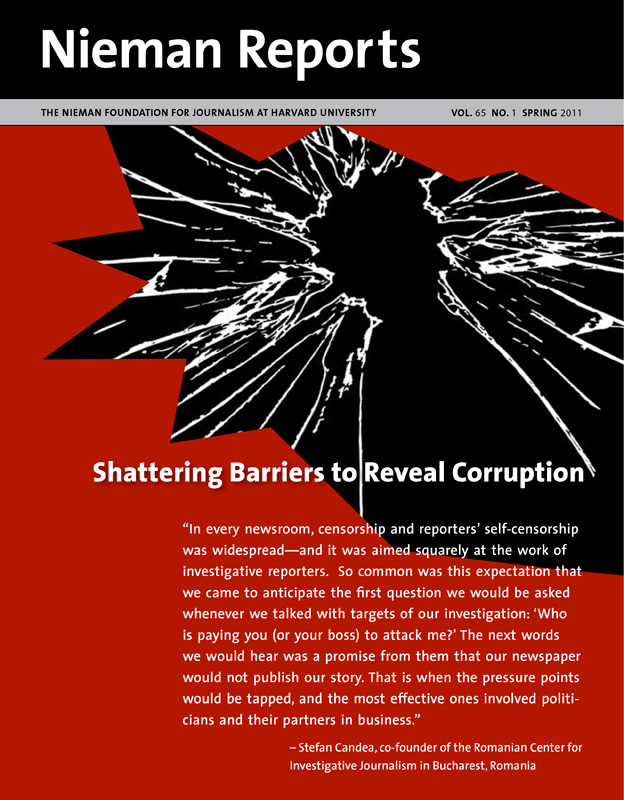RELATED ARTICLE
"Russian Journalists Need Help in Exposing Corruption"
- Alexei Navalny and Maxim TrudolyubovThe primary mechanism of big-time corruption is known as raspil, which translated literally means "sawing"—or siphoning away funds that the government allocates for construction and social projects. Recently the term "kickback margin" has emerged in Russia, according to Elena Panfilova, who directs Transparency International Russia. In the early years of the 21st century, the kickback margin was 15 to 20 percent but it has grown in just a few years to 50 to 70 percent, according to the Russian Association of Builders. Kickbacks are usually transferred to a "consultancy," which is an obscure company registered in Russia or offshore in the name of a wife or other relative of a person involved with the deal. When, and if, the time comes for actual construction or social projects to be done, they are paid for with a fraction of what was originally allocated.
RELATED ARTICLE
“Costs That Investors Seem Willing to Ignore”
- Alexei Navalny and Maxim TrudolyubovAlexei Navalny is a Russian lawyer, popular blogger, and a prominent anti-corruption campaigner. Maxim Trudolyubov, a 2011 Nieman Fellow, is editorial page editor of Vedomosti, a Russian business daily.
"Russian Journalists Need Help in Exposing Corruption"
- Alexei Navalny and Maxim TrudolyubovThe primary mechanism of big-time corruption is known as raspil, which translated literally means "sawing"—or siphoning away funds that the government allocates for construction and social projects. Recently the term "kickback margin" has emerged in Russia, according to Elena Panfilova, who directs Transparency International Russia. In the early years of the 21st century, the kickback margin was 15 to 20 percent but it has grown in just a few years to 50 to 70 percent, according to the Russian Association of Builders. Kickbacks are usually transferred to a "consultancy," which is an obscure company registered in Russia or offshore in the name of a wife or other relative of a person involved with the deal. When, and if, the time comes for actual construction or social projects to be done, they are paid for with a fraction of what was originally allocated.
RELATED ARTICLE
“Costs That Investors Seem Willing to Ignore”
- Alexei Navalny and Maxim TrudolyubovAlexei Navalny is a Russian lawyer, popular blogger, and a prominent anti-corruption campaigner. Maxim Trudolyubov, a 2011 Nieman Fellow, is editorial page editor of Vedomosti, a Russian business daily.



